The Internet for Gardeners | Another Tool in Your Gardening Toolkit
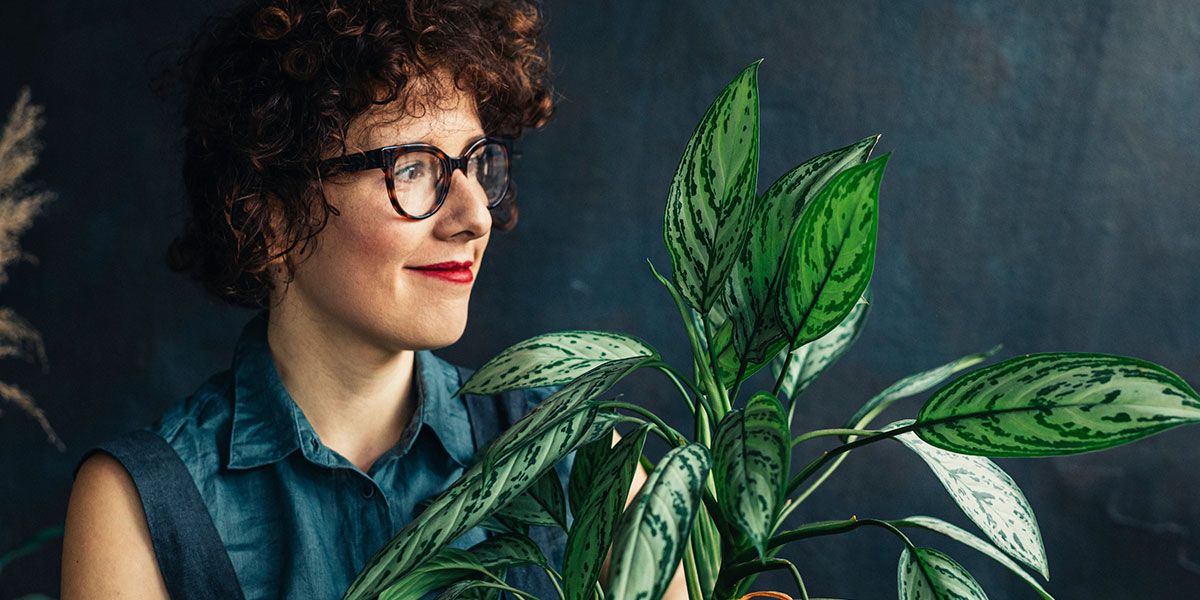
As any gardener can tell you, there seems to be an infinite quest for knowledge to help manage your garden. What’s this bug on my plants? When can I cut this back? Why is this not thriving/flowering/growing? Thankfully, with today’s technology, finding information is at the tip of your fingers. From what to plant, to where and how to plant it, to how to take care of it, the answer is out there with a few simple clicks. But how do you narrow down all this information to just a few reliable apps or websites?
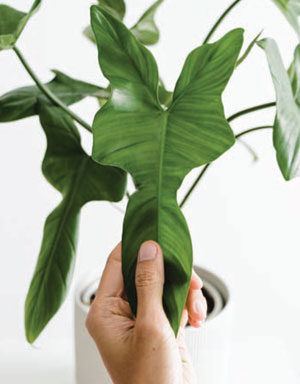 Let’s start with the device most likely to be in the garden with you: your smartphone. Among the apps that can help you in the garden are PlantSnap and PictureThis, both popular offerings that help identify plants and provide information on how to care for them. PlantSnap offers a free trial before you subscribe, while PictureThis has both free and paid premium account options. Both work by snapping a photo of the plant in question, which uploads to a database to deliver an answer quickly. Want to identify a strange bug in your garden? PictureInsect is the app for that; it works the same way, by identifying your uploaded photo. Want to redesign your yard? There are apps for that too, including iScape, helping you design and visualize your landscape plan before you start digging—and buying plants. Want help planning or managing your vegetable garden? Try Planter, the vegetable garden planning app.
Let’s start with the device most likely to be in the garden with you: your smartphone. Among the apps that can help you in the garden are PlantSnap and PictureThis, both popular offerings that help identify plants and provide information on how to care for them. PlantSnap offers a free trial before you subscribe, while PictureThis has both free and paid premium account options. Both work by snapping a photo of the plant in question, which uploads to a database to deliver an answer quickly. Want to identify a strange bug in your garden? PictureInsect is the app for that; it works the same way, by identifying your uploaded photo. Want to redesign your yard? There are apps for that too, including iScape, helping you design and visualize your landscape plan before you start digging—and buying plants. Want help planning or managing your vegetable garden? Try Planter, the vegetable garden planning app.
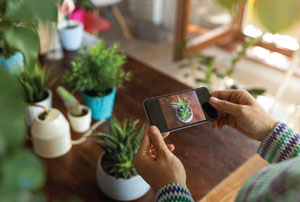 And while smartphone apps are great resources, sometimes you just want to talk to other people about your garden. That’s where social media comes in. Just about every social media site hosts gardener groups; for starters, Pinterest, Houzz, Instagram, Twitter, Reddit and Facebook offer opportunities to connect with other gardeners. Whether by following gardening accounts or by joining a group, there are many ways to connect and engage. Ranging from large, international groups to smaller, more localized ones, such groups allow you to exchange information, tips and ideas with others on the same quest. Local groups may offer the opportunity to swap seeds, plants and advice specific to your area. Many of these groups have policies regarding what can be posted, staying strictly to garden information and therefore avoiding some of the more unpleasant pitfalls of social media. To find a group, a simple search for “gardening” on your preferred social media site can set you in the right direction. To find more local-to-you groups, add in the name of your area to your search. You may have to request to join, sometimes answering clearance questions, but once you jump through the hoops, you will find yourself connected to gardeners of all levels.
And while smartphone apps are great resources, sometimes you just want to talk to other people about your garden. That’s where social media comes in. Just about every social media site hosts gardener groups; for starters, Pinterest, Houzz, Instagram, Twitter, Reddit and Facebook offer opportunities to connect with other gardeners. Whether by following gardening accounts or by joining a group, there are many ways to connect and engage. Ranging from large, international groups to smaller, more localized ones, such groups allow you to exchange information, tips and ideas with others on the same quest. Local groups may offer the opportunity to swap seeds, plants and advice specific to your area. Many of these groups have policies regarding what can be posted, staying strictly to garden information and therefore avoiding some of the more unpleasant pitfalls of social media. To find a group, a simple search for “gardening” on your preferred social media site can set you in the right direction. To find more local-to-you groups, add in the name of your area to your search. You may have to request to join, sometimes answering clearance questions, but once you jump through the hoops, you will find yourself connected to gardeners of all levels.
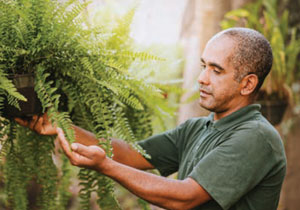 The gardening information available online isn’t just limited to plant identification and social media groups. Just like nearly every other aspect of our lives, you can also shop online for almost any plant you can imagine. While nothing replicates the experience of shopping at your local nursery, there have long been gardening catalogs that gardeners pore over, particularly in winter months, plotting their spring gardens. In keeping up with times, many of these catalogs have gone online, where they offer a wealth of information; in addition to seeds and plants, they often sell books and offer advice on best growing and harvest practices for the items they sell. There are several fantastic “local to Virginia” nurseries to order from, including Gloucester-based Brent and Becky’s Bulbs (brentandbeckysbulbs. com), and Clarksville’s Pine Knot Farms (pineknotfarms.com) which specializes in hellebores. Looking to add some edible elements to your yard? Nelson County-based Edible Landscaping (ediblelandscaping.com) has a wide array of fruit trees and shrubs to offer. Perhaps you’re just looking for seeds for your vegetable garden? Louisa County’s Southern Exposure Seed Exchange (southernexposure.com) specializes in varieties that grow well in the Mid-Atlantic and Southeast regions. Southern Exposure’s website also offers an online garden planner to help manage your garden through the seasons. Many of these nurseries are an easy day trip and offer workshops and tours, taking the online to an in-person experience.
The gardening information available online isn’t just limited to plant identification and social media groups. Just like nearly every other aspect of our lives, you can also shop online for almost any plant you can imagine. While nothing replicates the experience of shopping at your local nursery, there have long been gardening catalogs that gardeners pore over, particularly in winter months, plotting their spring gardens. In keeping up with times, many of these catalogs have gone online, where they offer a wealth of information; in addition to seeds and plants, they often sell books and offer advice on best growing and harvest practices for the items they sell. There are several fantastic “local to Virginia” nurseries to order from, including Gloucester-based Brent and Becky’s Bulbs (brentandbeckysbulbs. com), and Clarksville’s Pine Knot Farms (pineknotfarms.com) which specializes in hellebores. Looking to add some edible elements to your yard? Nelson County-based Edible Landscaping (ediblelandscaping.com) has a wide array of fruit trees and shrubs to offer. Perhaps you’re just looking for seeds for your vegetable garden? Louisa County’s Southern Exposure Seed Exchange (southernexposure.com) specializes in varieties that grow well in the Mid-Atlantic and Southeast regions. Southern Exposure’s website also offers an online garden planner to help manage your garden through the seasons. Many of these nurseries are an easy day trip and offer workshops and tours, taking the online to an in-person experience.
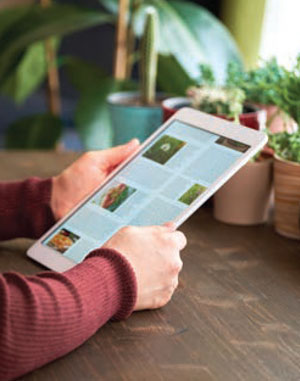 Not to be overlooked is the Virginia Cooperative Extension website (ext.vsu. edu). Brought to you by Virginia Tech and Virginia State University, the website offers a vast array of gardening and other horticultural information as well as links to local offices. Other Virginia websites of note include Virginia Invasive Species (invasivespeciesva.org), which identifies invasive species and offers tips on battling them, as well as the Virginia Department of Conservation and Recreation’s site with a page devoted to native plants (dcr. virginia.gov/natural-heritage/nativeplants).
Not to be overlooked is the Virginia Cooperative Extension website (ext.vsu. edu). Brought to you by Virginia Tech and Virginia State University, the website offers a vast array of gardening and other horticultural information as well as links to local offices. Other Virginia websites of note include Virginia Invasive Species (invasivespeciesva.org), which identifies invasive species and offers tips on battling them, as well as the Virginia Department of Conservation and Recreation’s site with a page devoted to native plants (dcr. virginia.gov/natural-heritage/nativeplants).
No matter your gardening conundrums, help is nearly always at hand in a wide range of apps and websites. Being a tech-savvy gardener might seem like a contradiction at first, but the internet can be a great tool to help make your garden all you want it to be. ✦
Facebook, gardening, Houzz, Instagram, internet, local to Virginia, PictureThis, pinterest, PlantSnap, Reddit, smartphone, social media, Twitter







